Abstract
Although phage-typing of some pathogenic microbes—e.g., Escherichia coli and the genera Salmonella, Staphylococcus, and Streptomyces—is in routine use, little progress has yet been made in the phage-typing of mycobacteria, chiefly because mycobacteriophages possess a polyvalence that prevents the reliable identification of individual species of mycobacterium. Furthermore, laboratories cannot compare their results because they employ different methods and culture media and also because the phages used cannot be accurately identified. It has been shown that internationally reproducible results can be obtained for M. tuberculosis by selecting suitable mycobacteriophages and sensitive culture media, and by using a standardized technique of phage-typing. Under these conditions, phage lysis may be utilized to classify strains of M. tuberculosis.
Full text
PDF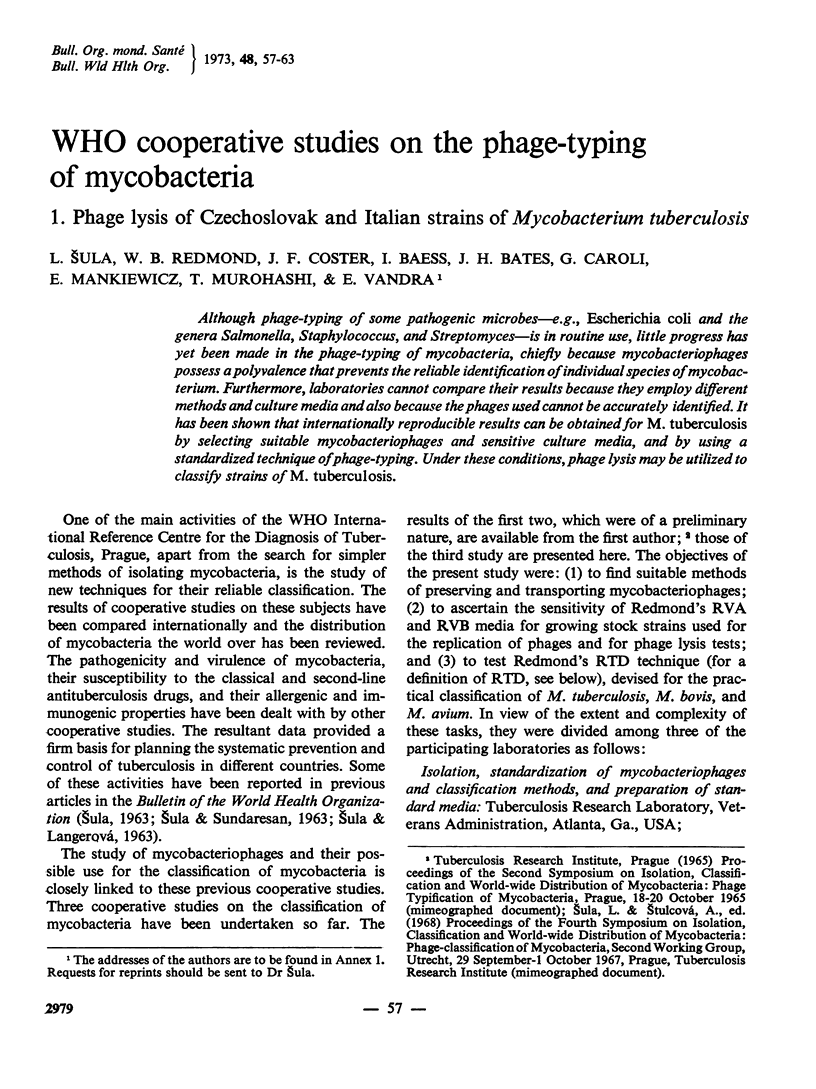
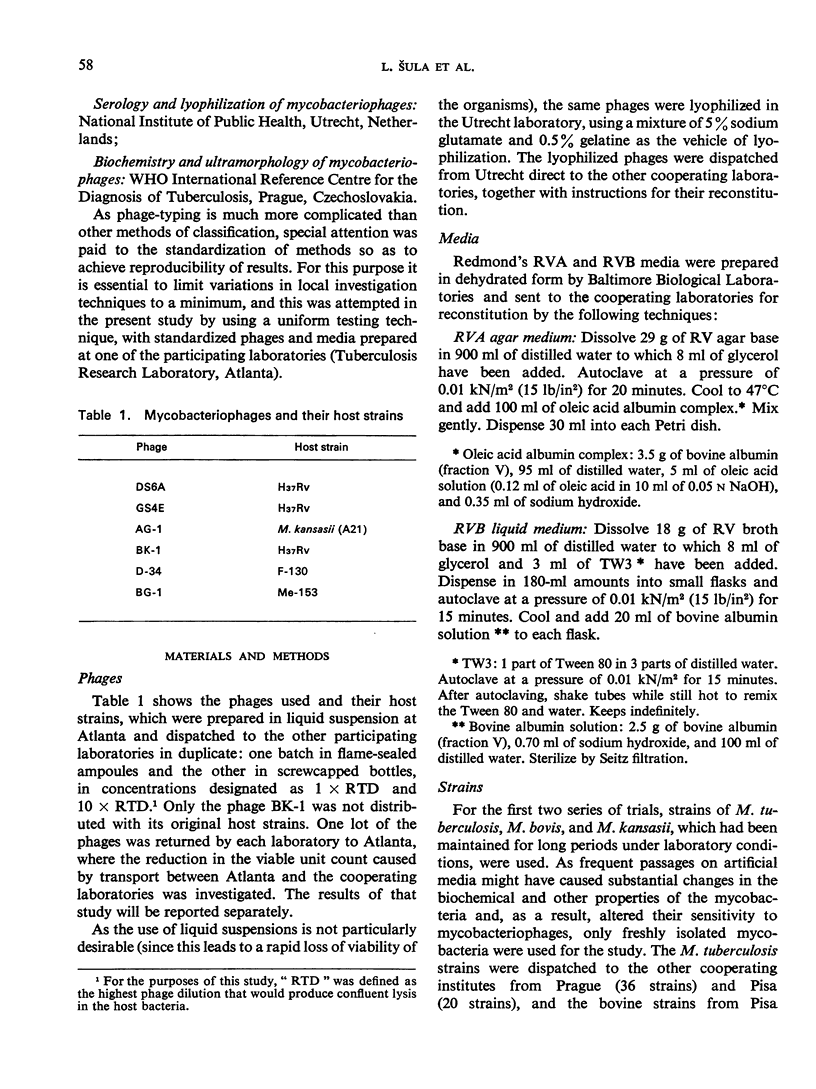
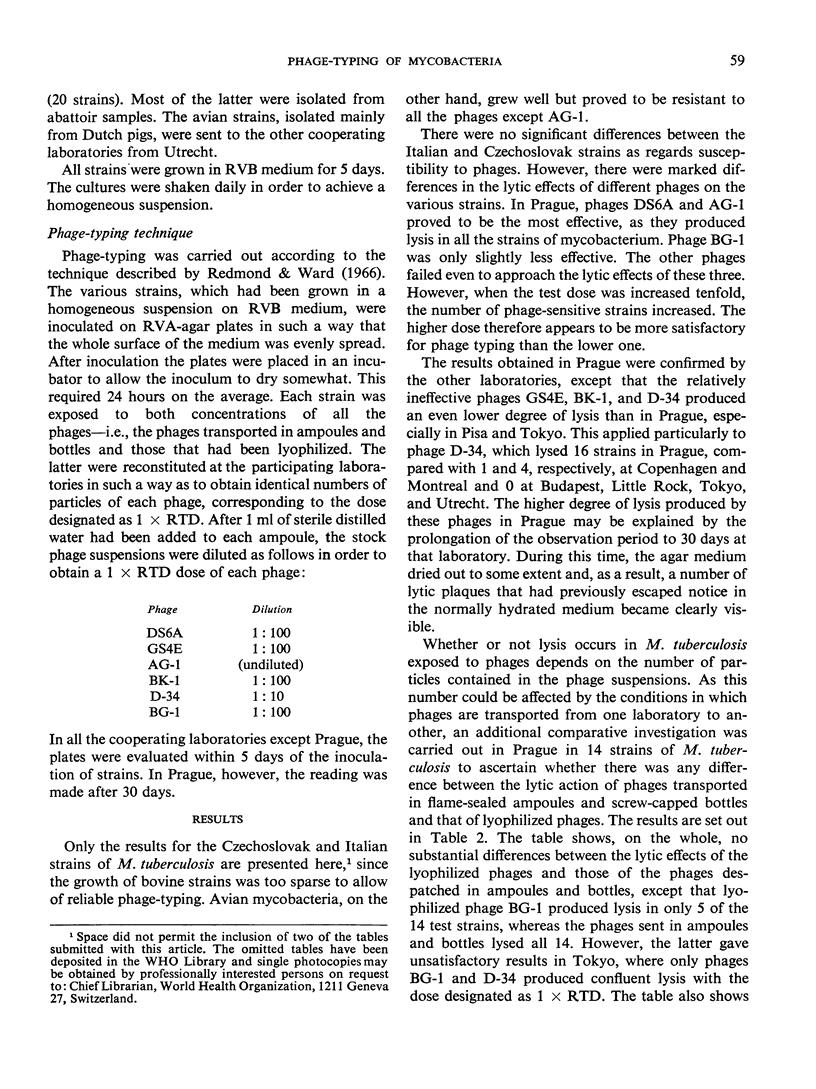
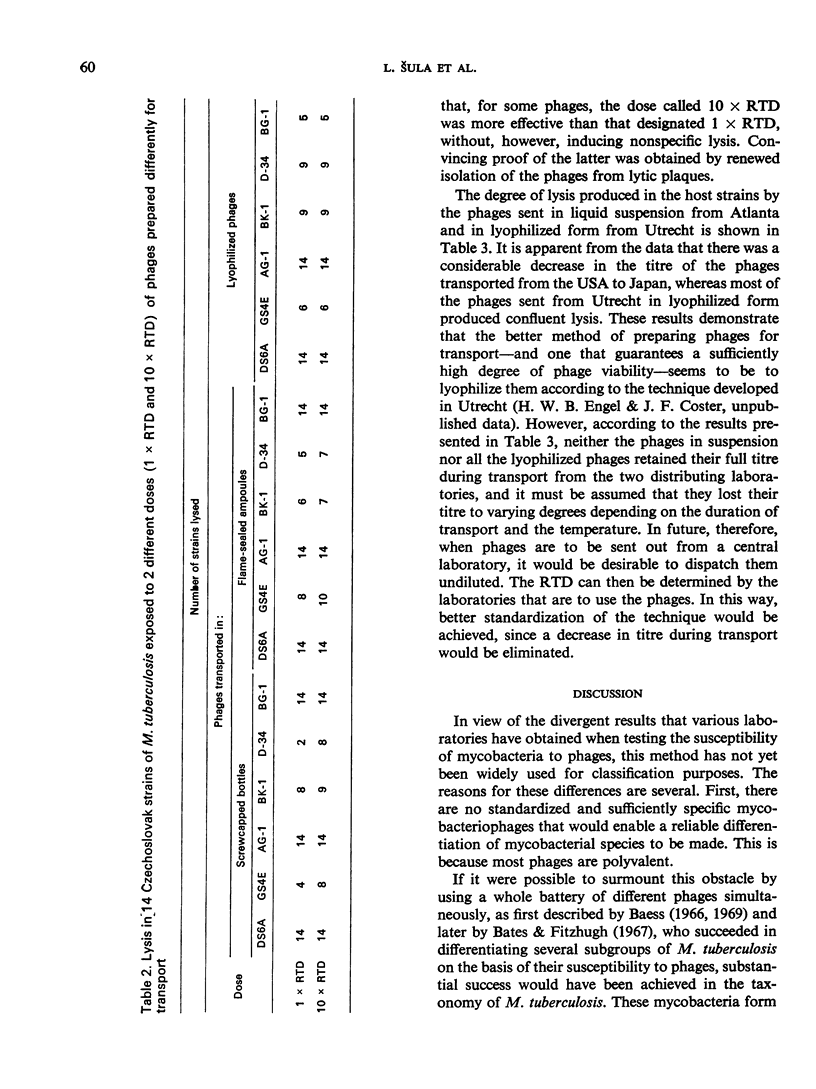
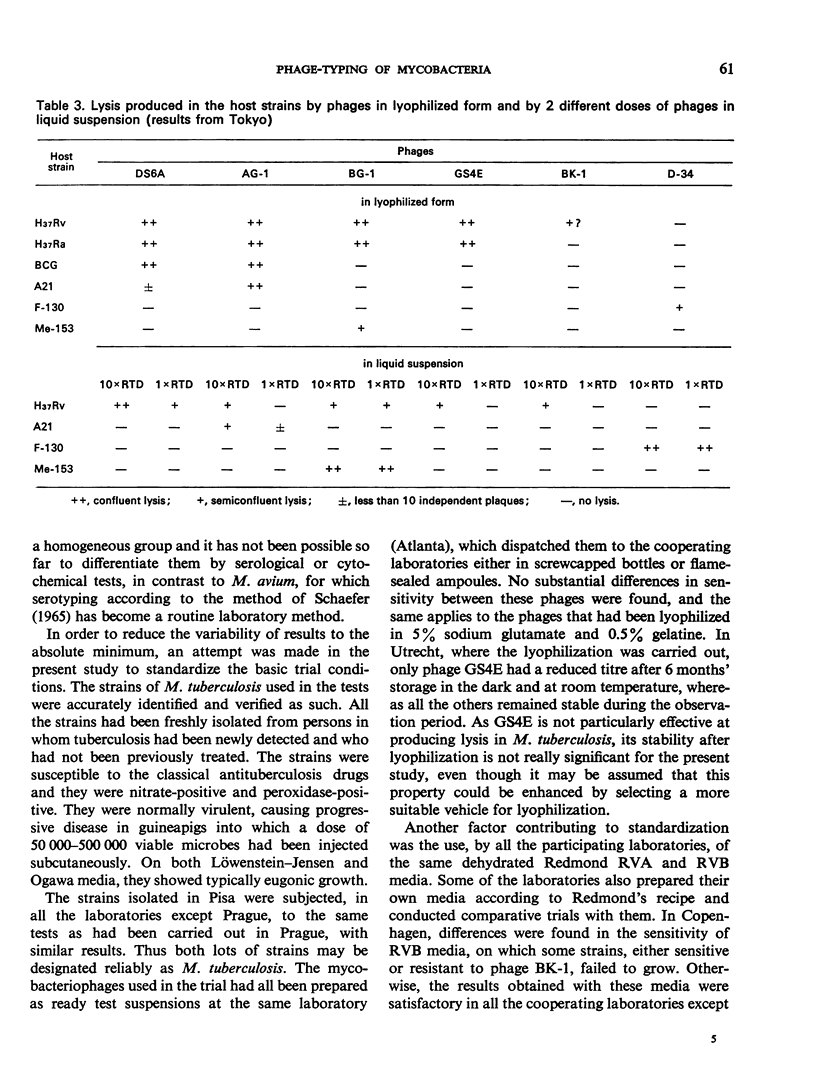
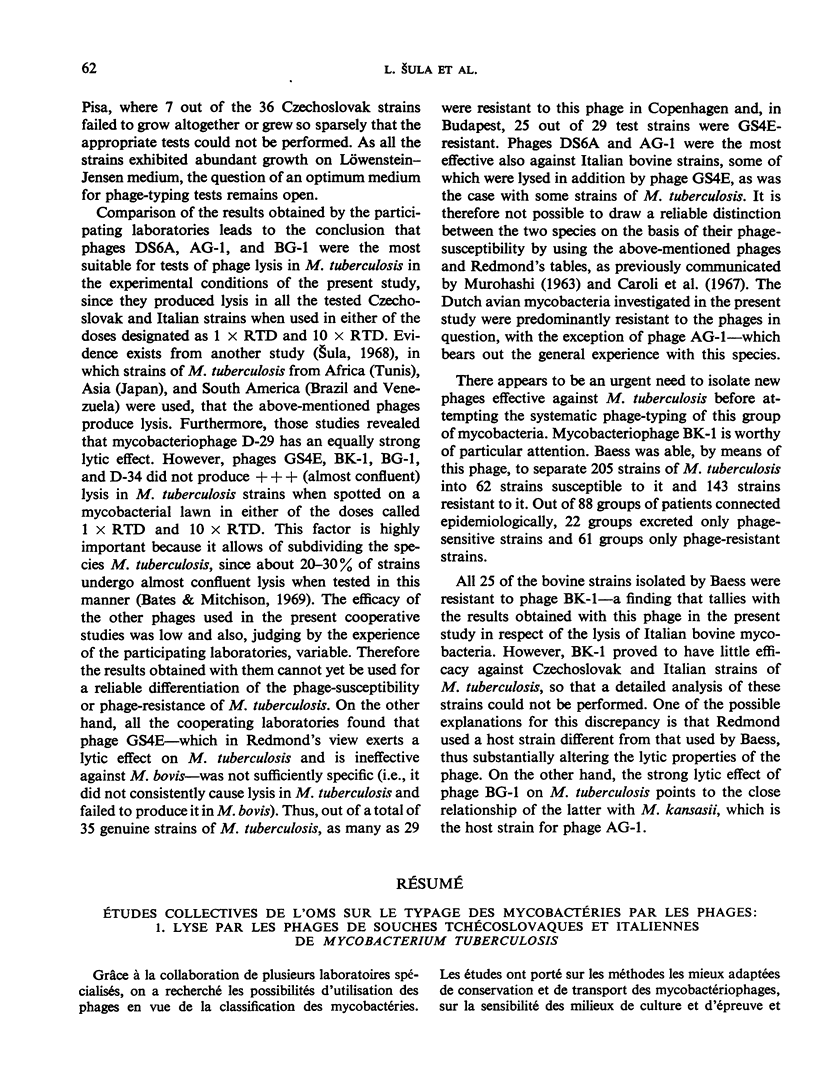
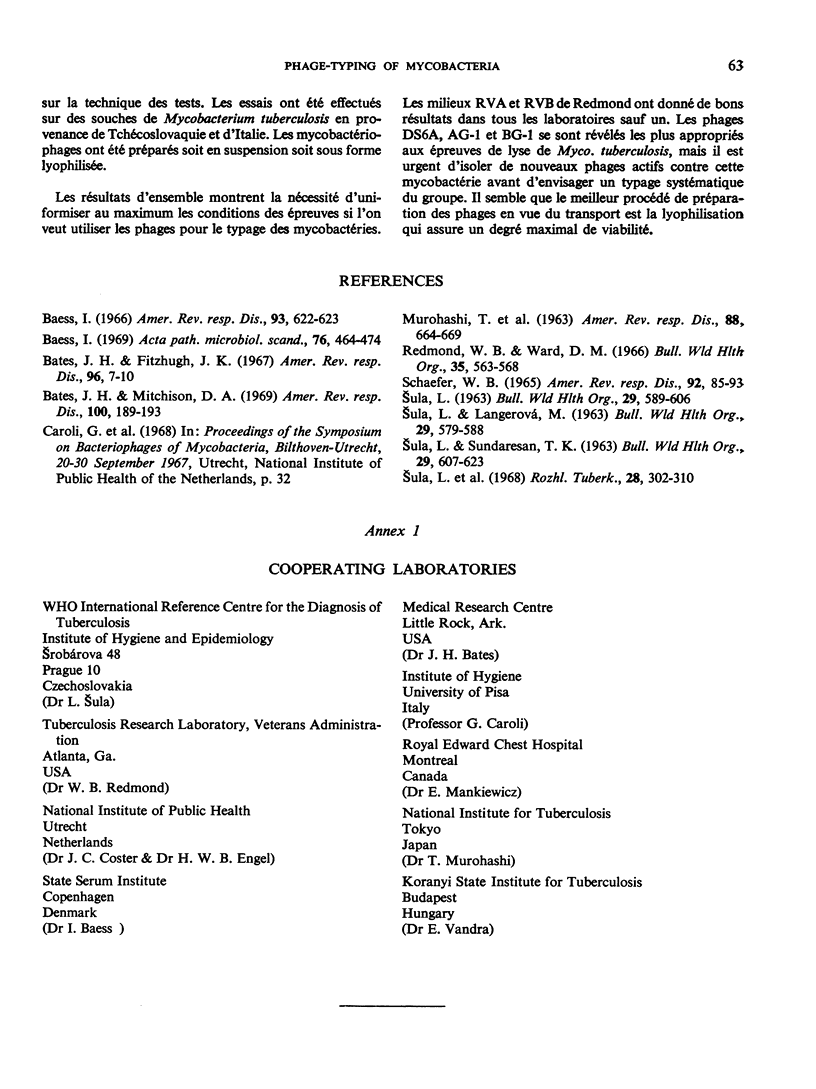
Selected References
These references are in PubMed. This may not be the complete list of references from this article.
- Baess I. A bacteriophage for subdividing the species M. tuberculosis. Am Rev Respir Dis. 1966 Apr;93(4):622–623. doi: 10.1164/arrd.1966.93.4.622. [DOI] [PubMed] [Google Scholar]
- Baess I. Subdivision of M. tuberculosis by means of bacteriophages. With special reference to epidemiological studies. Acta Pathol Microbiol Scand. 1969;76(3):464–474. [PubMed] [Google Scholar]
- Bates J. H., Mitchison D. A. Geographic distribution of bacteriophage types of Mycobacterium tuberculosis. Am Rev Respir Dis. 1969 Aug;100(2):189–193. doi: 10.1164/arrd.1969.100.2.189. [DOI] [PubMed] [Google Scholar]
- MUROHASHI T., TOKUNAGA T., MIZUGUCHI Y., MARUYAMA Y. PHAGE TYPING OF SLOW-GROWING MYCOBACTERIA. Am Rev Respir Dis. 1963 Nov;88:664–669. doi: 10.1164/arrd.1963.88.5.664. [DOI] [PubMed] [Google Scholar]
- Redmond W. B., Ward D. M. Media and methods for phage-typing mycobacteria. Bull World Health Organ. 1966;35(4):563–568. [PMC free article] [PubMed] [Google Scholar]
- SULA L., LANGEROVA M. DRUG SENSITIVITY-RESISTANCE DETERMINATION AND SIMPLE ENZYMATIC TESTS FOR THE DIFFERENTIATION OF MYCOBACTERIA. Bull World Health Organ. 1963;29:579–588. [PMC free article] [PubMed] [Google Scholar]
- SULA L., SUNDARESAN T. K. WHO CO-OPERATIVE STUDIES ON A SIMPLE CULTURE TECHNIQUE FOR THE ISOLATION OF MYCOBACTERIA. 2. COMPARISON OF THE EFFICACY OF LYOPHILIZED LIQUID MEDIUM WITH THAT OF LOEWENSTEIN-JENSEN (L-J) MEDIUM. Bull World Health Organ. 1963;29:607–625. [PMC free article] [PubMed] [Google Scholar]
- Schaefer W. B. Serologic identification and classification of the atypical mycobacteria by their agglutination. Am Rev Respir Dis. 1965 Dec;92(6):85–93. doi: 10.1164/arrd.1965.92.6P2.85. [DOI] [PubMed] [Google Scholar]


